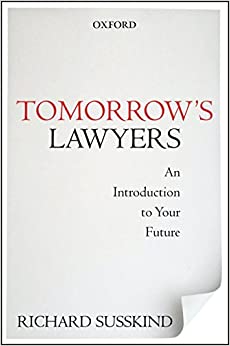TRCP RULE 198 AND RISKS IN RESPONDING
Michael Sean Quinn*
A
party must be cautious about writing “Admit” (“A”) as a response, given the dramatic
consequences it has on or for trial and summary judgment. The responding party needs to be quite sure, since there is little—though
some–chance to turn back. Of course, “Deny” (“D”) should not and cannot be
asserted to be as something other than “deny that a specific proposition is
now known to be true.” A proposition’s being known to a person means that
the person has a relevant belief which is both true and justified by evidence.
If a proposition is not known to a party, a denial of the proposition is (or
may be) appropriate in the context of requests for admission. Knowledge does not entail certainty, but they
often go together in a relatively simply matters; at the same time, certainty
does not entail knowledge, so counsel should be cautious about a client’s
certainty. Of course, both denials
admissions can be qualified if reasonable justification is set forth in some
detail; a five-word qualification is seldom sufficient.
Possibility to consider and some advise it unequivocally: When in doubt, “Deny.”
Admissions as to complex requests perhaps should be denied. There is almost certain to be something wrong with highly accounts of complex events. Interestingly, simply accounts of complex events are often that too, but not alway. Try: “God created the heavens and the earth.” True? False? Not know?
party must be cautious about writing “Admit” (“A”) as a response, given the dramatic
consequences it has on or for trial and summary judgment. The responding party needs to be quite sure, since there is little—though
some–chance to turn back. Of course, “Deny” (“D”) should not and cannot be
asserted to be as something other than “deny that a specific proposition is
now known to be true.” A proposition’s being known to a person means that
the person has a relevant belief which is both true and justified by evidence.
If a proposition is not known to a party, a denial of the proposition is (or
may be) appropriate in the context of requests for admission. Knowledge does not entail certainty, but they
often go together in a relatively simply matters; at the same time, certainty
does not entail knowledge, so counsel should be cautious about a client’s
certainty. Of course, both denials
admissions can be qualified if reasonable justification is set forth in some
detail; a five-word qualification is seldom sufficient.
Possibility to consider and some advise it unequivocally: When in doubt, “Deny.”
Admissions as to complex requests perhaps should be denied. There is almost certain to be something wrong with highly accounts of complex events. Interestingly, simply accounts of complex events are often that too, but not alway. Try: “God created the heavens and the earth.” True? False? Not know?
if there is a justification. The word “I” should not be used, since the client
is not signing the Response; it should be “the client.” My phrase, “figure it out,” is ambiguous. I
might mean “The client has tried to find the relevant information but can’t
seem to do so.” The alternative is “This request is incoherent so that rational
person cannot give a univocal response.” This idea works best when the Request
is complex sentence, though slightly more difficult to deal with when the Request
consists of one compound sentence, where neither part depends on the other. It
must be stated that at least sometimes “The client can figure it out,” is hard
to distinguish from an objection. What
difference that might make is unclear.
Of course, this is not intended to be legal advice. Although I believe what I’ve said is correct, I could be wrong, and the risk surrounding respond to requests for admission are great.
*Michael Sean Quinn, Ph.D, J.D., Etc.
Law Office of Michael Sean Quinn
Law Office of Michael Sean Quinn
1300 West Lynn #208
Austin, Texas 78703
(o)(c) 512-656-0503






Recent Comments